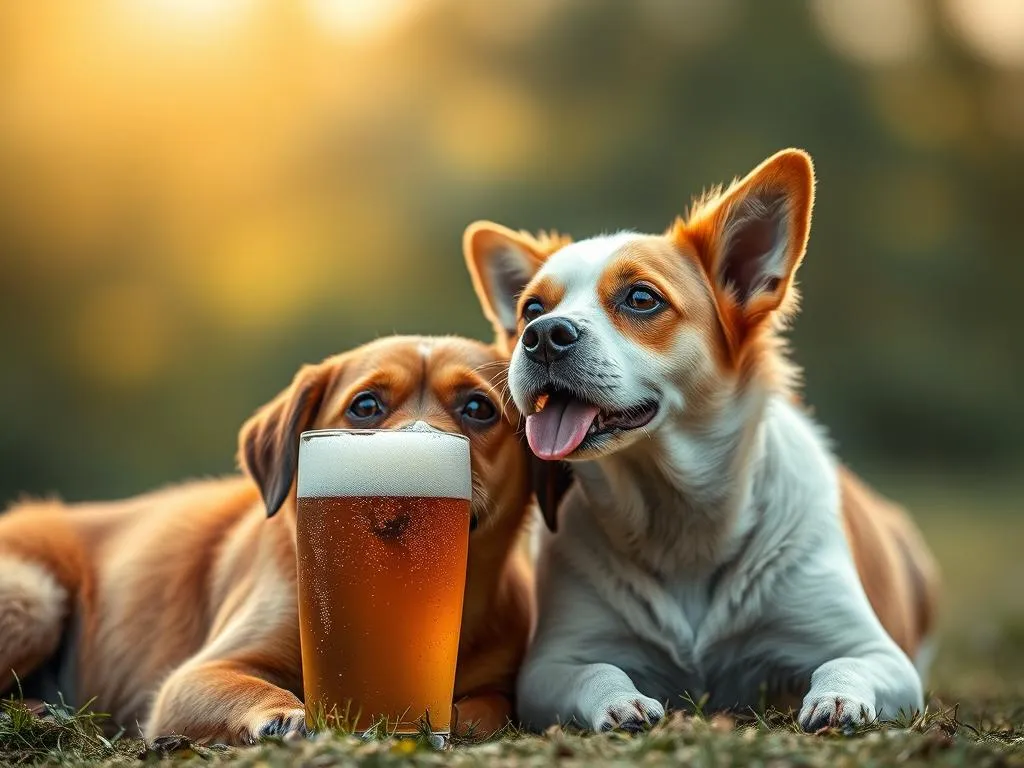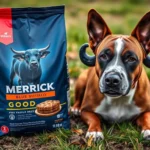
Introduction
When it comes to our furry friends, nutrition plays a pivotal role in their overall health and well-being. Just like humans, dogs require a balanced diet that provides all the essential nutrients to thrive. In recent years, there has been a growing trend in the pet industry—the emergence of beers for dogs. These dog-friendly beverages are designed to offer a fun and safe alternative for pet owners looking to include their pups in social gatherings. This article aims to educate dog owners about safe options for dog beers and their nutritional impact, ensuring that our beloved pets can enjoy the good life without compromising their health.
Understanding Dog Nutrition
Basic Nutritional Needs of Dogs
Dogs are omnivores, meaning they require a combination of proteins, fats, carbohydrates, vitamins, and minerals to maintain a healthy diet. Each nutrient serves a specific purpose:
- Proteins: Essential for growth, repair, and maintenance of body tissues.
- Fats: Provide energy and support cell function.
- Carbohydrates: Serve as a source of energy and aid in digestion.
- Vitamins and Minerals: Crucial for various body functions, including immune response and bone health.
A balanced diet is especially important for different breeds and ages, as puppies, adult dogs, and senior dogs have varied nutritional requirements.
Common Nutritional Myths
There are several misconceptions surrounding dog diets that can lead to poor choices:
- All human food is safe: While some human foods are safe, many can be toxic to dogs, such as chocolate, onions, and grapes.
- Grains are bad for dogs: In reality, many dogs can digest grains well, and they are a good source of carbohydrates.
- Raw diets are the best: Raw diets can pose health risks due to the potential for bacteria and imbalances in nutrition.
Understanding these myths helps in making informed decisions for your dog’s diet.
What Are Dog Beers?
Definition and Purpose
Dog beers are non-alcoholic beverages specifically crafted for dogs. They are designed to mimic the experience of drinking beer without the harmful effects of alcohol. These beverages serve a social purpose, allowing dogs to join in on the fun during gatherings, picnics, or dog-friendly events.
Ingredients Typically Found in Dog Beers
Dog beers are made from dog-safe ingredients. Common components include:
- Meat broth: Often the primary ingredient, providing flavor and hydration.
- Vegetables: Carrots, sweet potatoes, and peas are common for added nutrients.
- Malted barley: Used in some recipes but in a safe form for dogs.
It is essential to ensure that all ingredients are safe for canine consumption, avoiding harmful additives like onions or garlic.
Health Benefits of Dog Beers
Hydration and Social Interaction
One of the significant benefits of dog beers is their role in promoting hydration. Many dog beers are broth-based, making them an excellent source of hydration, especially on hot days. Additionally, they enhance social interactions, allowing dogs to partake in the fun at dog parks or pet-friendly gatherings, creating a sense of camaraderie among pet owners.
Nutritional Additions
Some dog beers come fortified with vitamins and minerals, providing additional nutritional benefits. However, it’s crucial to remember that moderation is key. Overindulgence in any treat can lead to digestive issues or weight gain.
Choosing the Right Dog Beer
Factors to Consider
When selecting a dog beer, there are several factors to consider:
- Ingredients list: Look for natural, dog-safe ingredients, avoiding those that could be harmful.
- Brand reputation: Choose brands known for quality assurance and safety standards.
Popular Dog Beer Brands
- BrewDog’s “Pawternity” Beer: A non-alcoholic option made with natural ingredients, providing a refreshing taste for dogs.
- Doggie Beer: This brand offers a variety of flavors, including chicken and beef, all made with pet-safe ingredients.
- Bark Brew: Known for its unique flavors, Bark Brew is a popular choice among dog owners looking for variety.
Each brand varies in flavors, ingredients, and price points, making it essential to choose one that suits your dog’s preferences and dietary needs.
Homemade Dog Beer Recipes
Simple Recipes to Try at Home
Creating your own dog beer at home can be a fun activity. Here are a few simple recipes:
Chicken Broth Beer
Ingredients:
– 2 cups low-sodium chicken broth
– 1 tablespoon apple cider vinegar
– A pinch of parsley (optional)
Instructions:
1. Mix all ingredients in a bowl.
2. Serve chilled for a refreshing drink.
Beef Broth Beer
Ingredients:
– 2 cups low-sodium beef broth
– 1 tablespoon pumpkin puree (unsweetened)
Instructions:
1. Combine beef broth and pumpkin puree in a bowl.
2. Stir well and serve cold.
Pumpkin Ale for Dogs
Ingredients:
– 1 cup pumpkin puree
– 2 cups water
– A pinch of cinnamon (optional)
Instructions:
1. Blend pumpkin puree with water until smooth.
2. Add a pinch of cinnamon if desired.
3. Serve chilled.
Safety Tips for Homemade Options
When making homemade dog beers, keep the following safety tips in mind:
- Avoid harmful ingredients like onions, garlic, and chocolate.
- Ensure all ingredients are fresh and safe for dogs.
- Consult your veterinarian if you’re unsure about any ingredient.
Serving Dog Beer Responsibly
Recommended Serving Sizes
When introducing dog beer into your dog’s diet, moderation is key. Generally, small dogs can have about 1 ounce, while larger breeds can enjoy up to 4 ounces. Always observe your dog’s reaction and adjust accordingly.
Pairing Dog Beer with Food
Dog beers can be paired with dog treats or meals. Consider offering them alongside healthy snacks like:
- Carrot sticks
- Sweet potato chews
- Homemade dog biscuits
Remember that moderation is essential, and treats should not exceed 10% of your dog’s daily caloric intake.
Frequently Asked Questions (FAQs)
Is dog beer safe for all dogs?
While most dog beers are made with safe ingredients, some dogs may have allergies or sensitivities. Always check the ingredients and consult your veterinarian if you have concerns about specific ingredients.
Can dog beer replace water?
No, dog beer should not replace fresh water. It can be an enjoyable treat, but fresh, clean water should always be available for your dog to maintain proper hydration.
Conclusion
In summary, beers for dogs can be a fun and safe way to include your furry friend in social activities. Understanding dog nutrition and ensuring balance is essential for their overall health. As a responsible pet owner, it’s crucial to choose high-quality dog beers, be mindful of serving sizes, and consult with a veterinarian when in doubt. Enjoy exploring the world of dog-friendly beverages, and relish the joy of sharing special moments with your four-legged companions!









